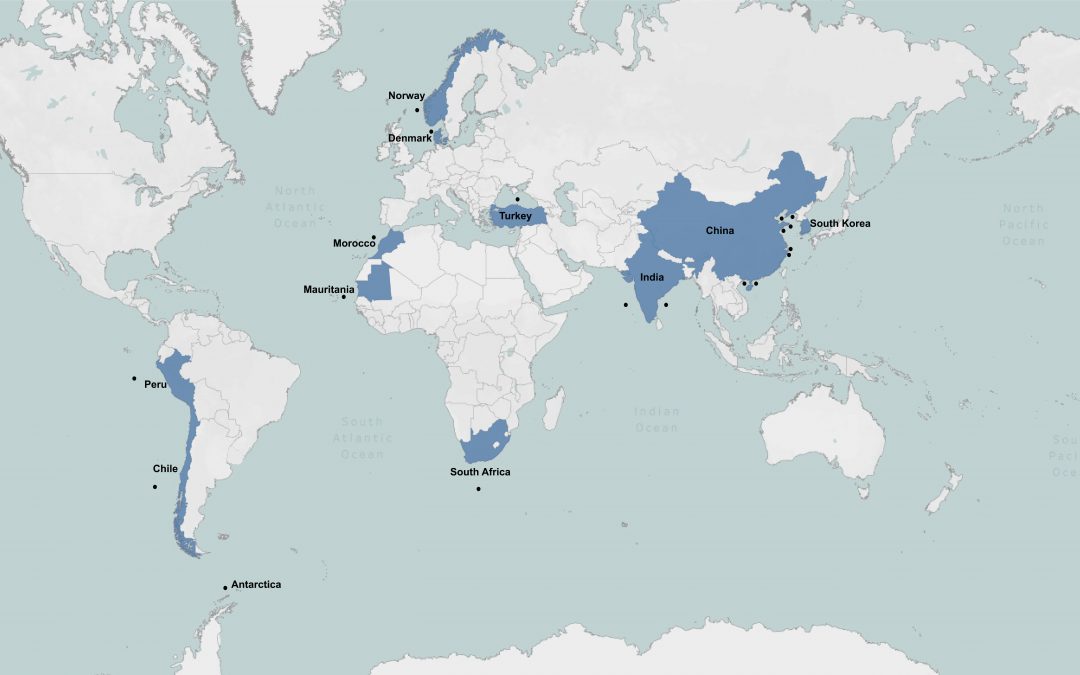Plastic (as both micro- and macro- plastic) is an important environmental contaminant, affecting the food chain and directly entering into marine products, including seafood. However, plastic contamination in wild-derived fishmeal, a globally traded commodity, remains unknown. Microplastic research group investigated the plastic content of commercial fishmeals by using a global sampling approach. This study is the first one to assess the plastic content and composition in commercial fishmeal products. The sampling consisted of 26 different fishmeal products, originating from 11 countries on four continents and Antarctica, and representing the vast majority of globally available and traded commercial products. A wide range of plastics content was found, ranging from 0 to 526.7 n kg-1, and a relatively higher plastics content was identified in fishmeal obtained from China (337.5±34.5 n kg-1) and Morocco (253.3±43.4 n kg−1), whereas no plastics were detected in krill meal obtained from Antarctica. The risk assessment based on feed conversion ratio (FCR) showed that the carnivorous fish species (e.g. eel) with a high percentage of dietary fishmeal, have a substantially higher risk for plastic intake, than other species. In conclusion, these results indicate that fishmeal can be an important pathway for plastics to enter the seafood chain.
Recent Posts
- The most comprehensive reference book on the plastic waste trade published
- Scientists from our group warn that plastics used for medical treatment cause a neglected direct human microplastic exposure
- New Study: Plastic Waste Trade: The Hidden Numbers
- Declaration of Solidarity: Journalists under attack for their investigative work on global plastic waste trade
- Scientists call for cap on production to end plastic pollution

